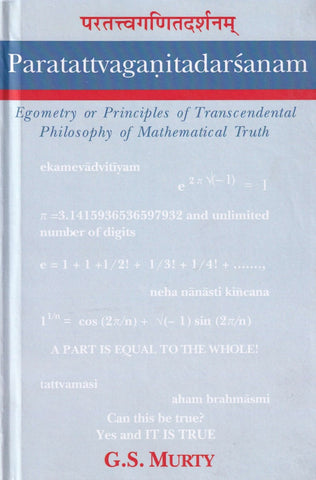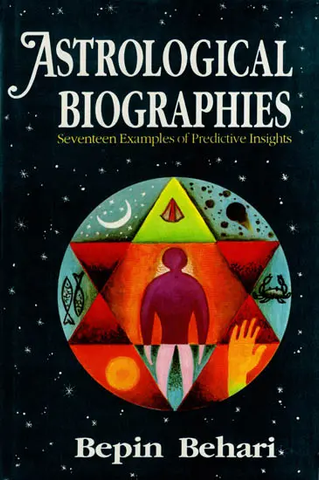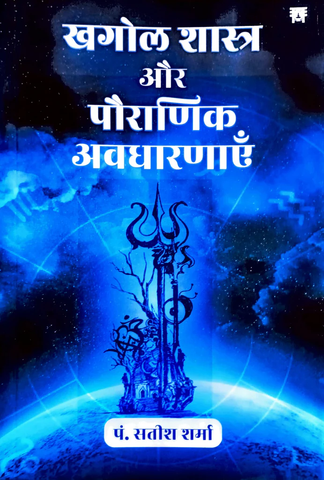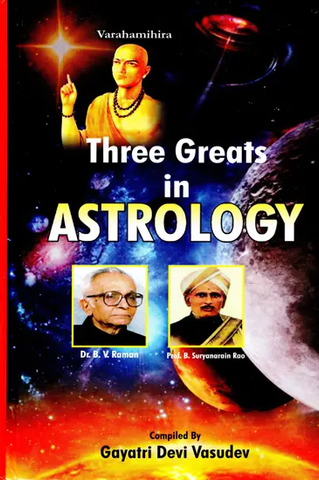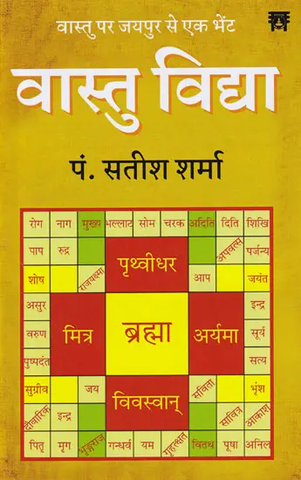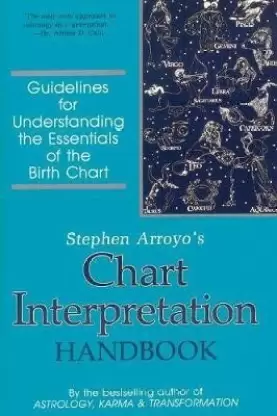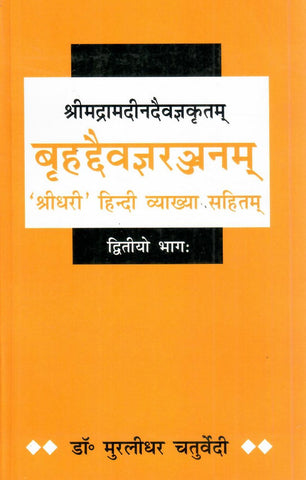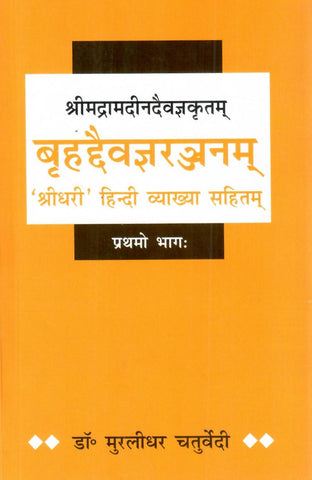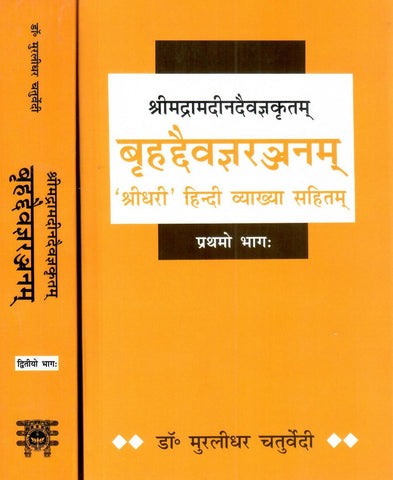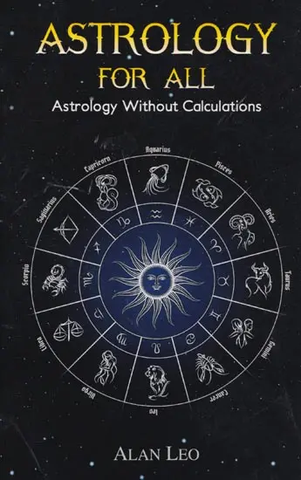Your cart is empty now.
Whether Hindu astrology is about a cause and effect, a relationship between man and the planets or a correlation between the two, or whether it is the language of the stars as a holy script embodying the all-pervasive, all-destructive Time - the past, present and future - is a question that will continue to baffle and engage the attention of all thinkers. But there can be little doubt about its delivering the goods in helping us to achieve the fourfold objectives (Dharma, Artha, Kama and Moksha) of life identified by the great Rishis of India.
With the philosophy that has come down through the ages from the Rishis (seers) of ancient India, Frawley takes up a discussion of Jyotisha starting from the basic step of calculating the chart to the more interesting part of understanding the chart„the planets, their qualities, characteristics, the signs and their descriptions, Nakshatras, houses, Yogas which are a unique feature of Indian astrology, divisional charts, Dasas and Bhuktis. From this point, consistent with his specialization in oriental medicine which includes Ayurveda, Dr Frawley goes on to medical astrology- tumours, diseases, constitution and psychology.
Review(s)
"Not only is the Astrology of the Seers a good introduction to Hindu Jyotisha, but it is also a mine of information on the subject."-Gayatri Devi Vasudev, Editor of the Astrological Magazine
"The Astrology of the Seers is a great introduction to Vedic astrology and, most importantly, clearly presents its spiritual and yogic basis. I recommend the book to everyone looking for a good place to approach this profound system of life-analysis."-Chakrapani Ullal, World Renowned Vedic Astrologer
"The Astrology of the Seers is already considered to be a classic text in the field and a solid cornerstone for any Vedic science library. The chapter on remedial measures for strengthening planetary energies is a uniquely valuable resource guide for inner healing."-Dennis M. Harness, Ph.D., Author of the Nakshatras
"The book surveys a very long span of both Time and Space. It discusses, even at times compares, the ancient literature of the Greeks, of the Vedic seers and of the other old civilizations like the Egyptians. The author deserves congratulations for attempting to tread a long and mysterious path of Astrology which is strewn with great difficulties and unexpected problems. The book deserves a place in every scientific library."-M.D. Pandit, B.O.R. Institute, Vol. lxxv (1994), Poona
About the Author
David Frawley (Vamadeva Shastri) is one of the few Westerners recognized in India as a Vedacharya or teacher of ancient Vedic wisdom. He is the author of numerous books and articles on Vedic Topics including Ayurveda, Vedic Astrology, Vedanta, Hinduism, Yoga and Tantra, as well as translations and interpretations from the Vedas. Dr Frawley has been given many awards for his work in India including the Veda Vyasa Award by the International Institute of India Studies. He is a Jyotish Kovid through the Indian Council of Astrological Sciences, and is also the President of the American Council of Vedic Astrology, the American offshoot of the Indian council; He has a Doctor's degree in Chinese Medicine and has also been certified as an expert through the University of Poona for his knowledge of Yoga and Ayurveda. He is presently the Director of the American Institute of Vedic Studies.
It is with a sense of great responsibility that I write the following lines as a foreword to Dr. David Frawley’s latest edition of the Astrology of the Seers, which is a welcome and comprehensive addition to the existing literature on Jyotisha from Western authors. Dr. Frawley is one of those few scholars who, though coming from the West, is imbued with the spirit of the East, especially India. His immersion in the spirit of the land of Jyotisha provides him with a major advantage in portraying Jyotisha as it should be, free of adulteration at the level of the spirit of science.
Hindu Astrology or Jyotisha, which is the subject matter of this volume, is one of India’s greatest gifts to mankind. Although at least 7000 years old and an integral and inalienable part of Indian culture and life, it was relatively unknown in the West until the 1950s. It was in the 1890s that my great grandfather Prof. Suryanarain Rao brought Jyotisha to the English-knowing public through the Astrological Magazine, which he started, and through his books on the subject. Unfortunately, the Astrological Magazine was discontinued shortly thereafter and it was only in 1936 that my father Dr. B. V. Raman restarted it and was able to take it to readers all around the globe.
Dr. Raman made. the Astrological Magazine the only magazine of its kind, the most authentic and informative journal on Jyotisha in the world. His solo ‘editorship of the magazine for over 62 years set a record unsurpassed so far by any other journal editor in the world. Through the pages of the Astrological Magazine, he introduced astrology to a wide range of subjects emphasizing its relevance to modern times, thereby catching the interest of the Western world.
Interest in Jyotisha has since then grown by leaps and bounds and has also created a crop of highly learned scholars in the subject of whom Dr. David. Frawley is easily one of the most outstanding. Known more in India for his historical work refuting the Aryan invasion theory proposed by colonial-period Orientalists and historians, Dr. Frawley is better known in the Western world for his expertise in Jyotisha and Ayurveda. He has had the opportunity to meet and interact with Dr. Raman several times and discuss with him Hindu astrology and Indian culture and has dedicated the new edition of his book to him.
As a scholar in the Rig Veda and its related astronomy, Dr. Frawley has also made a deep study of its sister science of astrology. Astrology or Jyotisha is more than a discipline in its own right; it is an integral part of Indian culture and life intricately interwoven into the warp and woof of one’s daily activities - mundane, spiritual, financial, mental, and filial and every other aspect that goes into creating a life for an individual in the society to which he belongs. Dr. Frawley succeeds in presenting the spirit of astrology to his readers in this volume. His Astrology of the Seers is a journey into the spirit of astrology. Especially for one born in a land with a culture totally different from Indian culture and thought, the volume opens up a whole new realm of thinking that encompasses not only the celestials moving around the skies but also the human experience on earth in the waking state.
Frawley sees astrology as "a means of converting all the universe into a symbol, a language for the development of the soul." In this perspective, he proceeds with amazing clarity to expound how to use Jyotisha to grow in reverence for the Self and to move gradually towards Self-realization in one’s journey on the earth.
Whether Hindu astrology is about a cause-and-effect relationship between man and the planets or a correlation between the no, or whether it is the language of the stars as a holy script embodying the all-pervasive, all-destructive Time — the past, present and future — is a question that will continue to baffle and engage the attention of all thinkers. But there can be little doubt about its delivering the goods in helping us to achieve the fourfold objectives of life identified by the great Rishis of India. These are Dharma (obligations between man and man and man and society), Artha (earning money), Kama (satiation, through legitimate channels, of the physical urges) and Moksha (liberation). All activity of the human being is directed towards attaining one or more of these goals and astrology enables one to move towards these goals in an organized manner.
The biggest casualty of modern civilization, where the emphasis is on Artha and Kama at the cost of Dharma and Moksha, has been mental peace and humaneness. An understanding of Jyotisha contributes to harmony and a more compassionate approach to our fellow humans, forgiving others for their lapses. This is because it sees these lapses towards us as being only the consequence of our own past. deeds (Karma) and therefore to be laid at our own doors. This karmic accountability can act as a deterrent against the wrong action and be the catalyst of the right action. And this accountability is obvious in one’s birth chart to a good Vedic astrologer.
With the philosophy that has come down through the ages from the Rishis (seers) of ancient India, Frawley takes up a discussion of Jyotisha starting from the basic step of calculating the chart to the more interesting part of understanding the chart — the planets, their qualities, characteristics, the signs and their descriptions, Nakshatras, houses, Yogas which are a unique feature of Indian Astrology, Divisional charts, Dasas and Bhuktis. From this point, consistent with his specialization in oriental medicine that includes Ayurveda, Dr. Frawley goes on to medical astrology — humour, diseases, constitution and psychology.
Astrology is a Vedanga and cannot be conceived of without its spiritual angle. A sadhaka (spiritual aspirant) of many years, Dr. Frawley is indeed at his best as he looks at the spiritual factors in the chart. He also includes remedial measures of gems, colours, mantras and propitiation of the planetary energies and deities. Finally, he analyzes 18 charts to illustrate the main principles of astrology.
The expertise and ease with which he wields his pen on astrology, presenting the important aspects of the science without, at any stage, making it appear dreary and technical, easily enable him to take the Western mind and intellect on this inner journey into the celestial connections that man has with his cosmic environment. Not only is the Astrology of the Seers a good introduction to Hindu Jyotisha but it is also a mine of information on the subject.
Revising an old title is a rewarding experience. First, it enables one to correct the errors in the previous edition ("Did I really say that?" one sometimes thinks). Second, it allows one to improve the style. Third, and perhaps most importantly, it enables one to update the material, which is a rapidly developing field that can be considerable.
Vedic astrology has come a long way in the ten years since I first wrote this book. At that time there was only one other title on the subject in print in the West (James Braha’s Ancient Hindu Astrology for the Modern Western Astrologer) and very little available by way of Vedic astrology computer programs. In writing the book I wasn’t even sure whom I was writing for. There was as yet no real audience of Vedic astrologers in the West. The book was written in an attempt to find or perhaps create an audience for the subject, and from there I was uncertain. I looked to two potential audiences, first from Western astrologers interested in another system of astrology and second from followers of Indian gurus and their teachings who might be interested in the astrological side of the tradition. Both audiences took to the book but perhaps more the second group.
The book, now as then, is intended as a general but comprehensive introduction to the subject. It is not simply inspirational in nature but contains some technical data. On the other hand, it is not a purely technical book for advanced astrologers but tries to provide access for a reader that may have no significant background in the subject.
For the second edition, the book has been rewritten and corrected, with hopefully greater clarity given and with a few more topics covered. The book is devised as a textbook of Vedic astrology on a beginner to intermediate level, as a means of leading people into a deeper study of this vast system.
I began my study of Vedic astrology in 1973. It was a few years earlier, on first discovering a book by Sri Aurobindo on the Vedas, that I became what could be called a Vedic person, seeing in the Vedas the highest wisdom.
T also studied Western astrology, but my Vedic background and my use of telescopes as a child caused me to prefer a zodiac that was based upon fixed stars and made Vedic astrology the preferable way to go. I began fitfully practising the system starting in 1975, gradually shifting from Western astrology to the Vedic.
In the late seventies and early eighties, I did a series of studies of the Vedas and Upanishads, the spiritual background of Vedic disciplines, which were published in India with the help of M.P. Pandit, the then secretary of the Sri Aurobindo Ashram. In 1984, when I was teaching along with Dr. Vasant Lad in his Ayurveda program, I started my first Vedic astrology class, mainly for Ayurvedic students. Though the students were all at a basic level (and probably the teacher too) it was at least a beginning. This encouraged me to write a correspondence course on the subject that I introduced in 1986. The course provided the basis for this book which first came out at the end of 1990, and in turn, I expanded and developed the course further.
It was not until 1992 that a Vedic astrology community began to emerge in the West. This was aided greatly by the first Vedic astrology symposium in the United States that I helped arrange along with Dennis Harness and Stephen Quong. No less a figure than Dr. B.V. Raman, by most accounts India’s greatest astrologer of this century, attended and blessed our new endeavour and, with his entire family, has remained a staunch supporter ever since.
| In 1993 this led to the founding of the ACVA (American Council of Vedic Astrology) at the second symposium, which has since blossomed into an organization of nearly four hundred people and represents perhaps the majority of Vedic astrologers in the United States. This is quite an achievement when one considers that in related fields like Ayurveda such an organization has not yet come into being. The ACVA is affiliated with the ICAS (Indian Council of Astrological Sciences), the largest such organization in India, led by Dr. Raman.
Over the same ten-year period I have been very active in travelling to India, which has included contacting various astrologers. Vedic astrology is not only alive in India but undergoing a renaissance. Though there are many charlatans, there are many serious astrologers producing good books and good research.
In the meantime, aided by the forum created by the ACVA symposiums, many Vedic astrologers have come here from India and begun teaching in this country. Several have written books on Vedic astrology specifically for Western or English language audiences. The available English titles from India have greatly increased both in quantity and quality.
Today there is a community of Vedic astrologers in the West that is rapidly growing. The level of expertise in the subject that they have achieved is becoming Vedic astrologers in India. All these factors point to a. renaissance in Vedic astrology and its spread worldwide. I am most happy that this has occurred and no doubt it will continue to expand in the coming years.
I would like to thank Dr. B.V. Raman and Chakrapani Ullal for their inspiration and guidance in my astrological work. I would like to give a special thanks to Dennis Harness who has been the energy behind the ACVA, without whom this community of Vedic astrologers in the West would not have been formed.
I would like to thank Ken Johnson for editing the manuscript, a job that he has done for several important Vedic astrology texts, Jane Adams of England for her excellent original drawings of the planetary deities, and Robben Hixson of Passage Press, who brought out the first edition of this book ten years ago.
Delivery and Shipping Policy
- INTERNATIONAL SHIPPING
- Rs.1000-1100/kg
- ESTD. Delivery Time: 2-3 weeks (depending on location)
- Bubble Wrapped with Extra Padding
- NATIONAL SHIPPING
- NCR: Rs. 30/half kg
- Standard: Rs. 80/half kg
- Express shipments also available on Request
- ESTD. Delivery Time: Ranging from 1-4 days up to 7 business days (Depending on your choice of Delivery)
- TRACKING
- All orders; national or international, will be provided with a Tracking ID to check the status of their respective orders
- Depending on the Shipping Service, Tracking ID may be used on their respective tracking portals
Frequently Asked Questions (FAQs)
Domestic Shipping: 3-4 Days (after shipping)
International Shipping: 1-2 weeks (based on your location)
You will receive an email once your order has been shipped or you can email us if you didn't receive tracking details (info@mlbd.co.in)
Every book that we sell is the latest edition except all the rare books
Yes, we do provide free shipping, only on domestic orders (within India) above Rs.1500


